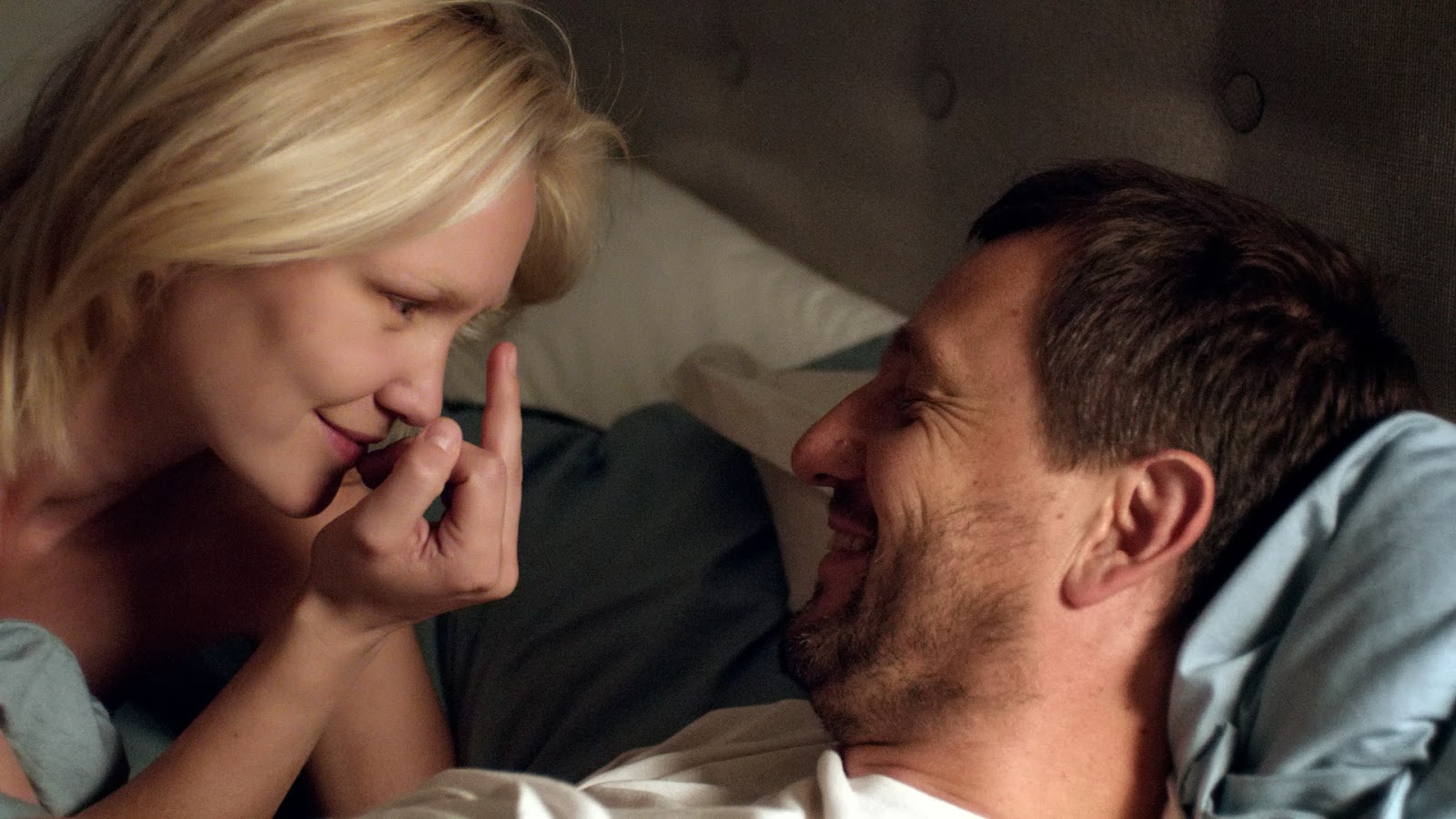 |
| BLIND © Kim Saatveldt |
SURREAL DISABILITIES AT BERLINALE PANORAMA
(Norway
/ Netherlands 2014, by Eskil Vogt with Vera Vitali, Henrik Rafaelsen, Elena
Dorrit Petersen)
Critique by Sieva Diamantakos
The characters in BLIND are a
woman (Elin) that came from Sweden
to live alone in Oslo
after she has left her husband and her son, whom she barely sees. A couple
(Ingrid and Morten), she just turned blind because of a rare illness while
apparently her husband is cheating on her.
The last character is a
lonely man (Einar), in the middle of his thirties, that indulges himself in all
the perversions offered by the internet porn market. It’s difficult at first to
recognise who’s the main character in the story. The director Eskil Vogt seems
to present different situations tied by a thread that will be revealed just in
the end. And in a sense it would be true, but only one story is really
happening, the others are just in Ingrid’s mind, when her blindness turns into
paranoia, creating unreal situations
that are products of her weaknesses.
This becomes clear just
towards the end, though the director wisely rations some “mistakes” that warn
you that something is wrong. These hints are anyway too feeble to grasp what is
happening. At first I thought the roles were changing as in David Lynch’s movies.
Or as in Cet obscure object du désir
by Luis Bunuel.
Nevertheless Ingrid thinks
that her husband is betraying her with that Swedish woman, her fantasy goes
further when her mind unfolds a scene in the restaurant where they meet and
Elin, the new lover, turns blind due to the same illness she is suffering.
The sequence is shot with
realism so that is difficult to understand whether it is really happening or
not; thus the scene becomes even more effective. The characters are acting
naturally, as they have been presented until now, so when you realise that
everything is illusory, you understand how deep Ingrid’s mental disorder is.
In her desperation she
struggles to keep her material life in focus, which is already a huge issue in
a world in which we tend more and more to ignore the other senses in favour of sight.
But her inner conflict is much worse, as she looses her faith to her husband
who cannot longer see, and, because of that, all her insecurities take over and
leave her in a state of constant threats.
The story twists at this
climax, the scenes become distorted, touching the boundaries of the surreal, as
in the party at the end of the movie.
Another interesting point of
the plot is when Einar meets Elin and starts having sexual fantasies about her,
due to the fact that she is blind. He’s used to watch porn every day for hours
so she cannot be more than a sexual object for him.
The more the plot develops,
the deeper the story gets, laying on two levels: The characters’ psychology and
the reflection about our society dominated by technology. Ingrid believed in
what she saw. Einar lives his life obsessed by virtual perversions, that help
him to cope with his anxiety. Even when he seems to look after a real woman
(Elin), he’s excited only by the fact
that she cannot see, replicating the same one-sided relation he has
while indulging in porn sites; he watches, gets aroused, but he’s not being
watched so basically he can’t be judged.
There’s a sense of powerlessness
in this film, the world we are living has become too liquid, due mainly to
internet and the latest technology developments, while our fears easily take
over on our weak minds.
But this layer of pessimism
and loneliness well represented also by a cold photography are mixed with sense
of irony and the surreal, especially in the last scenes, that balance a movie
that otherwise would have been too hard to digest.
Instead, this story is a gem
that questions the nature of our knowledge and our souls, which have become too
dependent on what we see.
Rating: * * * *


Keine Kommentare:
Kommentar veröffentlichen